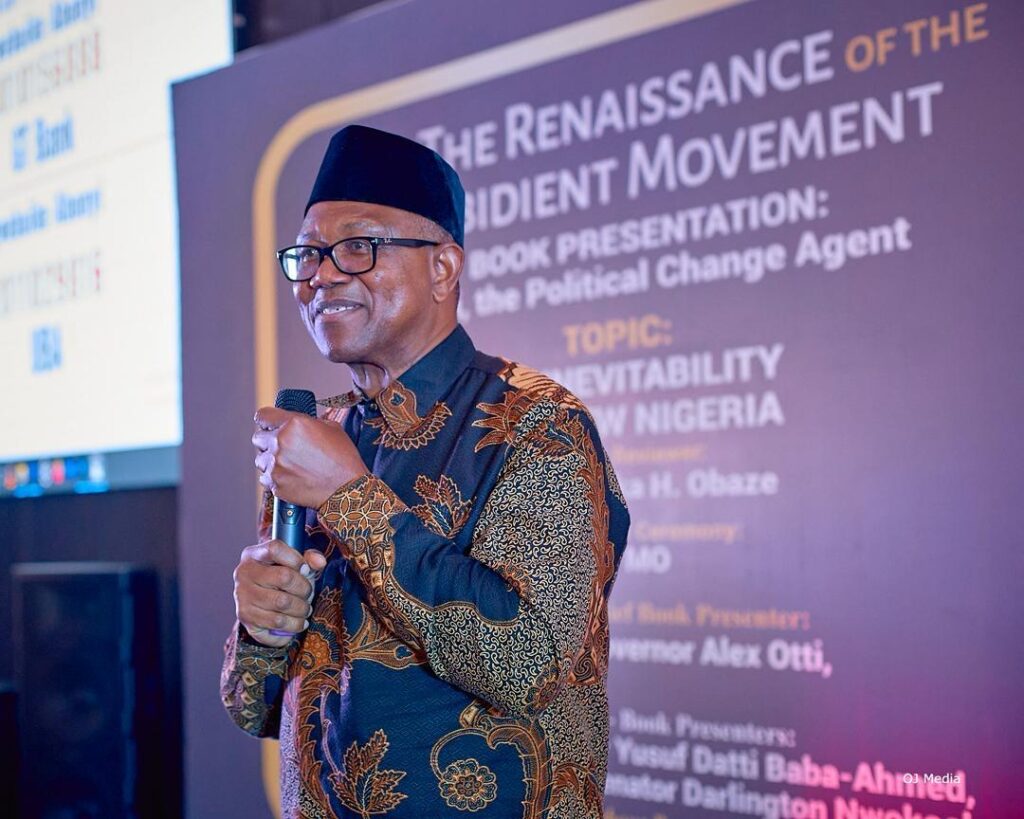Today, Nigeria marks Democracy Day a public holiday meant to honor the sacrifice of millions who defied military dictatorship, many laying down their lives in the fight for freedom. But under the leadership of President Bola Ahmed Tinubu, this annual ritual has become, according to critics, a macabre dance of hypocrisy.
Once a self-styled pro-democracy exile and prominent beneficiary of the June 12 struggle, President Tinubu now finds himself at the center of blistering accusations of presiding over one of Nigeria’s most repressive regimes in the post-military era. As he skips the traditional nationwide address in favor of speaking before a joint session of parliament, civil society groups, opposition movements, and ordinary Nigerians lament what they call a “complete betrayal of the democratic ideals” June 12 represents.
The Obidient Movement, a grassroots pro-democracy bloc, described the Tinubu-led All Progressives Congress (APC) government as “the greatest violator of human rights and enabler of authoritarianism since Nigeria’s return to civilian rule in 1999.”
Their accusations are backed by a string of damning reports. Amnesty International, in two separate statements, censured the administration’s track record, citing clampdowns on dissent, unlawful arrests, and the invasion of civic spaces. Most notably, the September 2024 storming of the Abuja office of Socio-Economic Rights and Accountability Project (SERAP) by the Department of State Services (DSS) symbolized the regime’s alleged hostility to criticism.
Journalists, bloggers, and online commentators have not been spared. The Cybercrime Act, once a safeguard against online abuse, has allegedly been weaponized to stifle free speech. “We are witnessing the rise of a digital dictatorship in a democracy,” one civil rights lawyer told this paper.
“Renewed Hope” or Recycled Despair?
President Tinubu’s two-year report card, unveiled two weeks ago, paints a portrait of glowing progress, with presidential spokesman Bayo Onanuga insisting the administration has made “undeniable progress.” But to many Nigerians, those words ring hollow an elaborate public relations spin at odds with the dire reality on ground.
Rising inflation (24.91% as of April 2025), surging unemployment, and widespread hunger have plunged millions into despair. A recent UNICEF report put Nigeria at the top of the global chart for out-of-school children 18.3 million and counting. Over 133 million Nigerians now live in multi-dimensional poverty, according to the National Bureau of Statistics.
“There’s no hope—renewed or otherwise,” said a Lagos-based economist. “Just inflation, hunger, and economic misdirection.”
Security in Shambles
On security, the government’s promises have failed to match performance. Bandit attacks, mass kidnappings even within Abuja have become weekly headlines. Tinubu’s vow to apply his “Lagos template” to national security now appears hollow. Instead, Nigerians see a president often abroad on “working visits,” even as blood spills at home.
Corruption: From Promise to Pandemic
Perhaps nowhere has the gulf between promise and reality been wider than on corruption. While the president’s Renewed Hope manifesto pledged lean governance and anti-corruption reforms, critics say the Tinubu government has ballooned in size and expenditure.
Most damning are the corruption scandals allegedly involving senior female APC officials, including a sitting minister, over the diversion of billions in social welfare funds. These cases have gone cold, and the Economic and Financial Crimes Commission (EFCC) has come under fire for chasing social media celebrities rather than politically connected suspects.
Meanwhile, the purchase of a new presidential jet and luxury vehicles worth over ?1 billion underscores what critics call a tone-deaf leadership.
A Shrinking Democracy
Observers also warn of a creeping authoritarianism. The controversial crisis in Rivers State where a duly elected governor and state assembly were removed through what has been described as “executive overreach” is seen as an attempt to turn Nigeria into a one-party state.
Early 2027 campaign posters of President Tinubu now blanket major cities, raising fears of an orchestrated power grab, even as the Independent National Electoral Commission (INEC) has not begun voter registration updates.
Conclusion: A Day of Irony, Not Honor
On this June 12, Nigerians remember the late MKO Abiola and the brave souls who dared to challenge tyranny. But for many, the commemoration feels more like a cruel joke—a national day of irony.
As the Obidient Movement put it: “Instead of honoring the spirit of June 12, this administration has dishonored its memory. We are not in a democracy. We are in a democracy in name only.”
In the words of a university student protesting in Abuja today:
“June 12 was about hope. But this June 12, hope is what we’ve lost.”
